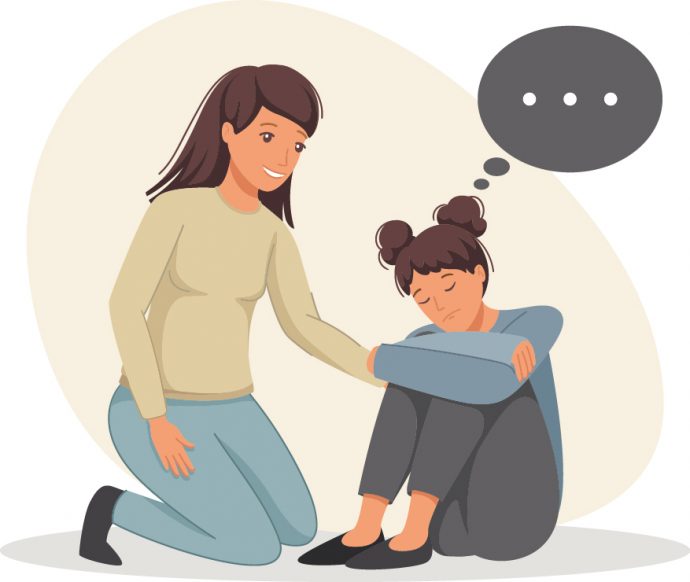Your child is going through puberty and you notice that he/she tends to be moody, overreactive or behave differently from usual. Is this just moodiness due to puberty or actually a sign of mood disorder?
Sadness and moodiness are normal emotions within a teen’s experience. However, when these emotions become extreme, prolonged, or appear without response to external setting and interfere with normal functioning, these emotional responses are considered mood disorders.
During puberty, some behaviours (e.g. moodiness, recklessness) are often observed in teens because their amygdala, which is a part of the brain involved in immediate, emotional reactions, develops earlier than their prefrontal cortex, the part of the brain that is responsible for rational thinking and behavioural inhibition. But it can be difficult for parents to distinguish between normal moodiness experienced by most teens and an underlying mood disorder, like depression or bipolar disorder, since the signs may seem similar.
Moodiness or mood disorder?
A mood disorder is a mental health condition that disrupts one’s emotional state. Someone with a mood disorder may experience a period of extreme or persistent emotions like happiness, sadness, anger or irritability. The symptoms must be present for several weeks or longer to be considered a mood disorder. It can also affect one’s daily routine, relationships and performance at school or work.
Mood disorders include:
- Depression (e.g. persistent depressive depression, seasonal affective disorder)
- Bipolar disorder (e.g. bipolar I & II, cyclothymia disorder)
- Premenstrual dysphoric disorder (PMDD)
- Disruptive mood dysregulation disorder (DMDD)
There are three key factors to differentiate normal moodiness from mood disorders.
Severity
If the symptoms are more noticeable and severe, it is likely that the problem is a mood disorder and not a passing mood. Symptoms may include changes in mood, behaviours like sleeping or eating more than usual, withdrawing from family and friends, feeling hopeless or loneliness, etc.
- Normal: Sleeping late on weekends and being tired on school mornings
- Concerning: Sleeping all the time and refusing to get out of bed
Duration
Any symptoms persisting continuously for two weeks or longer may indicate a mood disorder. In some mood disorders, symptoms may appear irregularly but for most of the time in a year.
- Normal: Mood changes that seem excessive to the causing event (from an adult perspective)
- Concerning: A persistent negative mood or irritability lasting for weeks
Domain
Any symptoms affecting multiple domains of a teen’s life, such as at home, in school and with friends, may indicate a mood disorder instead of a bad mood related to a specific situation.
- Normal: Not bothered to interact with family
- Concerning: Avoiding any interactions with family and friends, decline in school performance and other symptoms
Some teens have a higher risk of developing mood disorders, e.g. teens who have self-esteem issues or a learning disability, victims of physical/sexual abuse, those with a family history of mental health problems, those who had a recent traumatic life events and others. If you suspect that your teen is experiencing a mood disorder, please consult a healthcare professional and continue to provide support to your teens.






